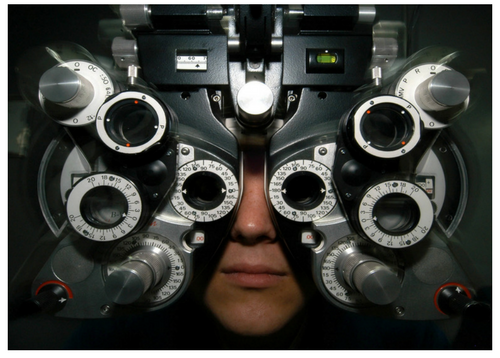 If you take your car in for a routine oil change every three months, but can’t remember when your last comprehensive eye exam was, you’re not alone. Unfortunately, only about half of all Americans schedule an eye exam every year and less than two-thirds of those exams are comprehensive.
If you take your car in for a routine oil change every three months, but can’t remember when your last comprehensive eye exam was, you’re not alone. Unfortunately, only about half of all Americans schedule an eye exam every year and less than two-thirds of those exams are comprehensive.
If you’re not experiencing vision problems or eye discomfort, it might be hard to rationalize making a trip to your eye doctor. “What’s the big deal?,” you might be thinking. “I don’t need an eye exam. I can see fine.” While that may be true now, we want that to be the case for years to come.
Scheduling a comprehensive annual eye exam with your ophthalmologist is the most important thing you can do to prevent vision loss.
The majority of eye diseases are asymptomatic until they reach the later stages and become serious, threatening a person’s vision. A comprehensive annual eye exam will allow your eye doctor to evaluate the health of your eyes and make recommendations based on their current state.
During your comprehensive annual eye exam, your ophthalmologist will…
1. Ask you questions about your family’s medical history and assess your vision and overall health.
2. Evaluate your visual acuity with a standardized eye chart.
3. Inspect your pupils to see how they respond to a light stimulus.
4. Assess your side vision to rule out or diagnose glaucoma.
5. Test your ocular mobility (eye movement) to evaluate your eyes’ alignment and muscle function.
6. Measure the pressure within your eye (intraocular eye pressure or IOP) to rule out or diagnose glaucoma.
7. Examine the front part of your eye — eyelids, cornea, iris, and lens — to rule out or diagnose cataracts or other abnormalities.
8. Examine the back part of your eye — retina and optic nerve — to rule out or diagnose other eye diseases.
9. Determine the appropriate eyeglass and/or contact lens prescription if vision correction is needed.
10. Discuss other recommended treatment options like LASIK and other surgical procedures.
Important Note: A comprehensive eye exam is not the same thing as a vision screening. A vision screening is basically a visual acuity test that can be performed anywhere glasses are sold, while a comprehensive eye exam includes the tests listed in bullets above and is performed by a licensed practitioner. We recommend that you schedule a comprehensive eye exam once a year (especially if you are diabetic and/or over age 40) as it will provide you with a more thorough evaluation.
 The purpose of scheduling a comprehensive eye exam every year is to prevent and detect vision problems and eye discomfort before they start. However, if you begin experiencing any of the symptoms below, you should make an appointment with your ophthalmologist right away:
The purpose of scheduling a comprehensive eye exam every year is to prevent and detect vision problems and eye discomfort before they start. However, if you begin experiencing any of the symptoms below, you should make an appointment with your ophthalmologist right away:
- Eye pain, swelling, or discharge
- Blurry or double vision
- Dark or bright spots
- Flashes of light
- Floaters
- Halos or rainbows around light
- Light sensitivity
If you don’t already have an ophthalmologist you know and trust, we would love to meet you. At Baptist Eye Surgeons, we’re dedicated to providing you with top quality eye care. Meet our doctors to learn more about the eye diseases and disorders we treat.
To make an appointment at our Knoxville, TN or Morristown, TN locations, please request an appointment online or call 865-579-3920 during business hours.





